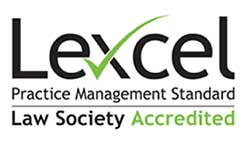There is a lot of confusion and conflicting information about whether or not the conveyancing market is effectively ‘on pause’ during the current pandemic. In this article, we summarise the current position (as at 1 April 2020).
On 26 March the Government issued advice on home moving during the coronavirus (COVID-19) outbreak.
The overriding message was there is no need to pull out of transactions, but:
- we all need to ensure we are following guidance to stay at home and away from others at all times, including the specific measures for those who are presenting symptoms, self-isolating or shielding; and
- the health of individuals and the public must be the priority.
The UK is currently under the strictest restrictions on civil liberties in a generation. Emergency legislation has been rushed through Parliament to give legal weight to government guidance to stay at home.
The Health Protection (Coronavirus, Restrictions) (England) Regulations 2020 (SI2020 No.350) makes it an offence to leave one’s home, unless there is a ‘reasonable excuse’ to do so.
Paragraph 6(2)(l) of the Regulations states that ‘to move house where reasonably necessary’ is an exception to the requirement to stay at home.
The Law Society (the representative body of solicitors) has provided specific guidance to practitioners to complement the government advice.
What can we do during the period of emergency restrictions?
It is not illegal to move home, so long as it is ‘reasonably necessary’ and people can do so without the risk of spreading the virus. There may be practical issues, such as removal services, to overcome.
Even where there is no absolute necessity to move home – and that is of course a very subjective test – that does not mean that the underlying property transaction cannot go ahead. Here are some examples of how you can make progress:
- Completion is delayed by mutual consent – the parties agree to a ‘long completion’ but exchange contracts in order to secure the transaction. Mortgage lenders may extend mortgage offers by up to three months.
- Moving into an unoccupied property – where there is no risk of spreading the virus by moving into an empty property, and it is ‘reasonably necessary’ for the buyer to do so.
- The seller stays put by agreement – the lawyers may be able to negotiate a legal way for the completion to take place where the seller stays in the property under a licence granted by the buyer.
- The sale of a property that is not going to be occupied immediately. The property may be unoccupied prior to the sale or the sellers have already made arrangements to live elsewhere.
The law can be very innovative in times of necessity, which is why having skilled property lawyers on your side is so important.
Safeguards that must be in place
As solicitors, it is our responsibility to act in your best interests, but not at the expense of the wider public interest. We must also not help facilitate an offence, including under the emergency Regulations.
If you intend to complete a house purchase and move home, public and individual health considerations must be paramount. That will include:
- Ensuring that the parties are not in a vulnerable group that should be ‘shielded’
- Avoiding the house move if any parties are showing symptoms of the virus, or should for any other reason be self isolating
- Taking all reasonable precautions not to spread the virus – strict social distancing, regular hand washing, and cleaning surfaces that may contain the virus.
These transactions should be delayed until after restrictions are lifted
- Where it is not ‘reasonably necessary’ to move home (i.e. it would be an offence under the Regulations to do so), and there is no option of completing the transaction without a house move.
- Where the rules on social distancing cannot be maintained.
- Where any of the parties are in a vulnerable group or should otherwise be self-isolating.
- Where the parties (for example in a long chain) cannot agree on a practical way forward that reduces the risk for all parties involved.
Contact our Experienced Property Lawyers
Getting advice early is essential, and our Property Solicitors are available now to discuss your options with you. Call us today on 0808 168 5813 or complete our online enquiry form.



